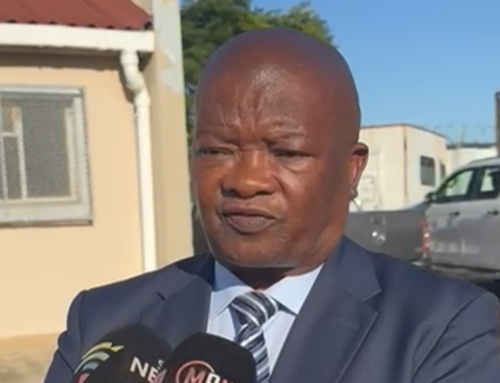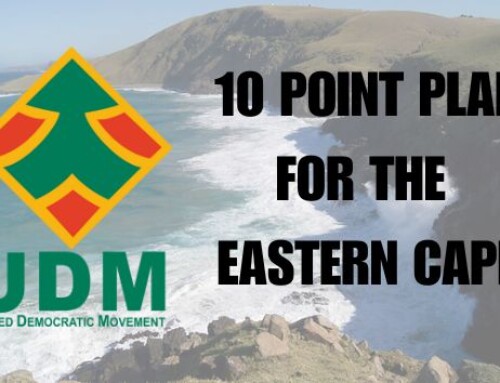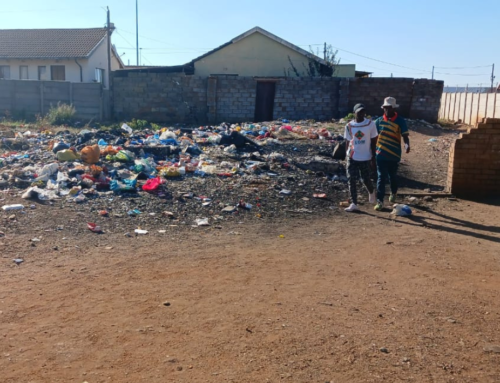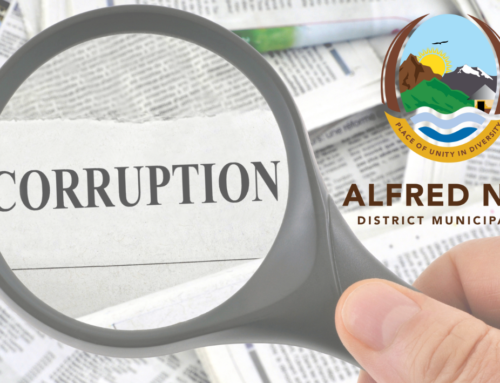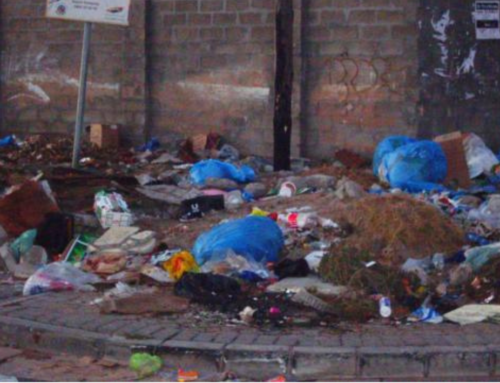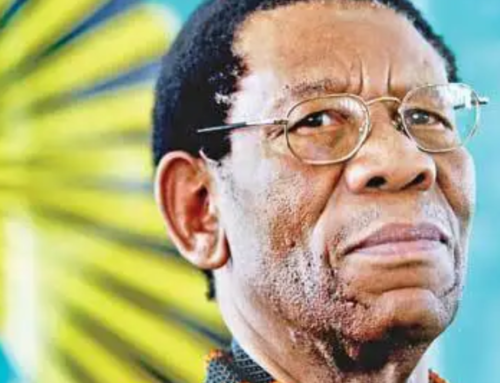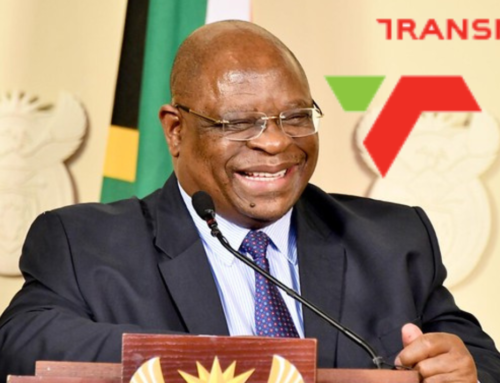

Ladies and gentlemen, South Africa faces a triple crisis.
Not the conventional one of unemployment, poverty and inequality, though those underlying socio-economic conditions remain, scarring our land, and casting a long shadow over the post-1994 South Africa.
No, a new triple crisis: first, a fiscal crisis; second, an energy crisis; and third, the climate crisis that affects everyone, everywhere around the world.
While the climate crisis is a global phenomenon, in which the developing world is a victim of the choices made by the Western powers of the industrial revolution and what followed it, the first two are own goals.
The fiscal crisis and the energy crisis are failures of governance.
To position ourselves for the future, we first must fix these two problems. For the economy to grow, we need a reliable supply of energy. For the investors to invest, we need a reliable supply of energy.
And to avoid a downgrade to full junk status, we need to stabilize the fiscus. In turn, that means addressing the size of the public sector wage bill. All eyes will be on Tito Mboweni next week when he delivers his budget speech.
Will he be able to show sufficient progress since the mini-budget last October. I very much doubt it.
The danger of the downgrade, is that it puts further pressure on the fiscus and then on the social wage. If the government finds that it cannot maintain the social security safety need that it has created since 1994, and which the Constitution requires, then we will be in real trouble in terms of socio-economic risks and public order unrest.
But we are not there yet. And we must not be too pessimistic. This is a resilient country, as we have shown many times.
Most recently, we showed it in our determination to defend the freedoms and rights enshrined in the Constitution. A rogue president was held to account and ultimately ousted from power. Our rule of law held the line; our judges proved their independence; and many of our institutions either resisted state capture or slowly being rebuilt.
Although I credit our President with having made steady progress in his reform programme, I worry about the urgency and boldness of his decision-making. I am concerned that he does not understand the full gravity of the situation.
Even more worryingly, I am worried that he is too concerned about appeasing his political enemies within the ruling party.
That is a waste of time and energy. The Zuma cabal, the Fightback Faction – call them what you like – are a bunch of scoundrels. Their strategy is a scorched earth strategy.
The worst things are, the worse it is for the president, and the better it is for them. They believe that they can defend their interests and avoid prosecution and jail. They must be proved wrong.
Hence, although the link with the economy is vague and indirect, I realise that in order to position ourselves for the future, we need to show to ourselves and to the world that we are capable of bringing to account those who were responsible for state capture.
And we must not make the mistake, state capture did not start in Zuma’s era, it was there long before that. Just look at the Arms Deal and Sarafina II scandals and Chancellor House in particular which was a vehicle to loot state resources with impunity.
They must pay the price for their vandalism and their selfish disregard for public integrity.
The other important way in which we can position ourselves for the future is to be more decisive about where in our economy we want to welcome in new private sector investment.
It is clear now that the government has run out of ideas and run out of runway – certainly in terms of SAA, if you will forgive the pun – in terms of the contribution it can make to public investment and job creation. If anything, the state needs to make some tough decisions to prevent massive job losses and cut costs, because of the fiscal crisis.
While the state has a developmental role to play, it also needs to reignite economic growth of new private investment.
This is no time, then, for holding onto sacred ideological cows. We need to be pragmatic. We cannot deny the fact that the state has a critical role play in redressing the backlogs and imbalances of the past. There is once more a great opportunity to find common cause between the state, the people and the private sector.
We need to align policies with the needs of investors, and we need to provide clear policy certainty above all else.
The tensions at NEDLAC, between labour and big business, and the mistrust investors have around government’s connection with labour needs to be addressed. This could be attended to by including other social partners.
Here again, there are concerns about the willingness and ability of the President and his cabinet to offer the certainty that is required. Too often they appear not to be singing from the same hymn sheet.
The notes jar; there is a discordant sound when, for example, Minister of Minerals and Energy Gwede Mantashe, speaks on the subject of opening up the energy sector to private investment.
Why is this? Is it really ideological wariness or is the hesitation due to something else? Is he trying, for example, to protect coal interests? Or his apparent reserve about renewable energy more to do with a concern that foreign renewable energy companies will prove to be resistant to attempts to create rent-seeking opportunities for the tender-preneur community?
We need the president to lead. His job is to ensure that his cabinet is aligned and speaks with one voice, unequivocally obedient to the strategies he outlined in SONA last week.
To do so, he will have to abandon the pretence that the ANC can be re-united. That ship has sailed – long ago. It is divided and factionalised. He is on a complete hiding to nothing if he invests too much political capital in trying to keep everyone inside the ANC happy.
So, he must decide where his real priority lies. There can be only one choice: the country. But I wonder whether he is capable of making that tough choice.
Lastly, we must play to our strengths. This is a country that is rich in talent, has plentiful local capital markets and well-run companies as well as some well-run public institutions. As I have said, it has an independent judicial branch of government. And it has an effective, free media and a robust civil society.
We must work together to harness these talents. We can no longer expect government to do everything, still less the ANC. We must take our futures into our own hands, forging partnerships across sectors and society and the economy.
We must do what we do best as South Africans – be creative and resilient, and thereby avoid the precipice.
The responsibility for those of us who are elected to serve in parliament is to look beyond the walls of parliament and to help cultivate those creative partnerships.
As we build our ability to build and sustain coalitions in party politics, so too we must build and sustain extra parliamentary coalitions – between political leaders, community leaders, NGOs and thinktanks, and, yes, business.
That is the sort of social compact that we need. If we do so well, then we will position ourselves effectively. We will be able to articulate exactly what it is that we need our government to do, and then the government will have no choice but to respond positively.
This requires a sense of strategic leadership and vision. Those of us with power and privilege and wealth will need to continue to make sacrifices in service of this goal. Because we must remember that the great majority of South Africans struggle to live a decent life and to feed their children.
We owe to them to create the conditions, the partnerships, the policies, and the good governance needed to grow the economy and create employment.
Nobody doubts that over the last 25 years we have been consumers, we need to find the ingredients to bake a bigger economic cake so that everyone not only gets a fair share, but that they also contribute to a healthy, stable and growing economy.
I thank you.












